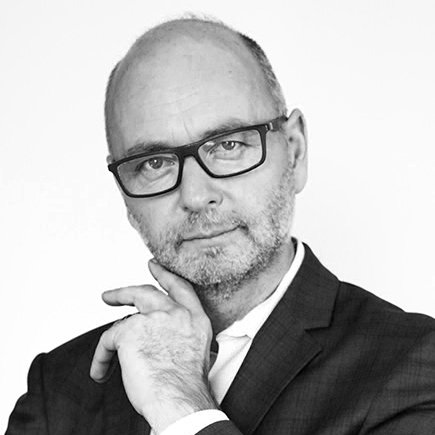 Photo by itakdalee/Getty Images
Photo by itakdalee/Getty Images I am a British-born Protestant who became an American citizen and runs an institute that keeps alive the truth of the greatest crime against the Jewish people in modern history. My wife is Jewish and I have Jewish step-children. My ex-wife is Asian and we have Asian-British-American children. My brother, also a scholar of genocide, also an Englishman, was married to a Rwandan woman, and my niece is a second-generation survivor of the Rwandan genocide. Currently, my daughter’s best friend, a young black woman, is living with us. My family right now is two Brits, five Jews, four Asian-Americans, four white Christians and two black people of African descent.
I don’t just talk about difference, diversity and acceptance as part of my job; it is what we live at home.
Yet, watching America convulse over these past few weeks, watching George Floyd die with a white police officer’s knee on his neck, learning the names of Ahmaud Arbery and Breonna Taylor and Tony McDade and now Rayshard Brooks, we realized that, for all our multicultural living, our family has never really reckoned with race.
And so, these past few Sundays, my family has gathered for our “Family Learning Zoom on Race,” instigated by our children (ranging in age from 15 to 28). We watch a movie and then we discuss it. The first was “13th,” Ava DuVernay’s harrowing documentary examining racial inequality in the American prison system. We talked about what we learned, then we made an action plan. We are now on DuVernay’s drama, “When They See Us.”
We’ve never had conversations like this before. Usually, we come together as a family for celebrations. My Christian kids have learned the Passover Haggadah, my Jewish step-kids get to throw snowballs at Christmas. Now our task is to learn, to grow and to better understand each other. That family connection is foundational to anything we can do to help society.
Now our task is to learn, to grow and to better understand each other. That family connection is foundational to anything we can do to help society.
We’re building empathy and in doing so, I am learning about my own unconscious biases.
At the USC Shoah Foundation, where we work with 55,000 testimonies of genocide survivors, the bulk of whom are Jewish Holocaust witnesses, I lead regular online meetings on topics of the day. We recently held one to discuss our organization’s response to George Floyd’s death and the protests in the aftermath. Questions whirled about slavery and genocide, police brutality and racism. Was it even within our mission to address these issues?
Racism is a precondition to genocide, but genocide is not always the end point of racism. There is a legitimate fear that making comparisons can lead to the trivialization of the Holocaust. That said, there is no hierarchy of suffering. Every life lost to racial violence has equal value. I had lunch last week with Joshua Kaufman, a 92 year-old Holocaust survivor, and we discussed historical violence against black people in the United States. He said, “I am happy that people of different backgrounds are walking with the black community because we have to stop this hate together.”

I also grappled with an uncomfortable position: some members of the Black Lives Matter (BLM) movement support the boycott, divestment and sanctions (BDS) movement, which seeks to punish Israel and is anti-Semitic to its core. Does supporting BLM equate to supporting anti-Semitism? In the past, I chose not to support BLM — not because I do not believe in fighting racism — but because I did not want to be a proxy to anti-Semitism. Which meant in the end I was silent.
Why was I willing to avoid dealing with issues in American society because of some peoples’ views on the Middle East? I love Israel and will defend it to my dying day. But am I so fearful of what people will think? I know that BDS is anti-Semitic, and I fight such views fearlessly. I also know that view has nothing to do with racism in the United States. The BLM movement is made up of many organizations, the vast majority fighting for justice at home.
I also learned about my own political biases. In our online meeting, I heard conservative voices presenting their cases in good faith. As a progressive, my bias was to hear conservative views on the recent crisis as being too narrow. As an academic and a fair-minded person, I pride myself on following the data and listening to many points of view. One participant wisely said, “If we preserve the memory of our own Jewish suffering and are true to the values it represents, we win the right to speak to our own society.” Another participant said “fighting racism in the United States isn’t part of the mission of USC Shoah Foundation.” This viewpoint sparked a strong reaction. I don’t agree with that view, but as one participant thoughtfully reminded us, learning to respect views you don’t share is the first step to finding solutions.
Through these tough weeks and challenging conversations, I’ve relearned the fundamental truth that the basic unit of change is the individual. Things are not going to change unless people are prepared to change and listen to one another. Far from these conversations dividing my family or my community, we are coming closer together, learning from one another.
Stephen D. Smith is Finci-Viterbi executive director of the USC Shoah Foundation.























 More news and opinions than at a Shabbat dinner, right in your inbox.
More news and opinions than at a Shabbat dinner, right in your inbox.